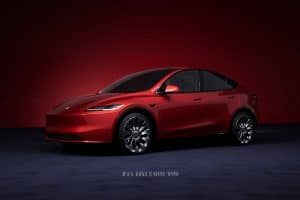Recent polling conducted by Texas 2036 shows that over half of voters under the age of 45 have bought an EV or are considering buying one.
In a poll released by Texas 2036, a non-profit voter polling agency in the state focused on gauging the interests of voters on a wide variety of topics, over half of younger voters already own or are considering buying electric cars. The poll found that those who were between the age of 35-44 were most likely to acquire EVs (56%), followed by 18-34-year-olds (53%), then 45-55-year-olds (34%), and finally voters over age 55 (20%).
The poll also examined why voters were or were not interested in buying electric vehicles. Surprisingly, the top reason cited as why voters wanted to buy electric vehicles was “reducing auto emissions that contribute to climate change” at 41%, followed by “the rising cost of gas” at 28%, and “new technologies or other features in EV models” at 19%.
Voters who were not interested in buying an electric vehicle believed that electric vehicles were too expensive (30%), while roughly a quarter preferred gas or diesel vehicles (23%), and a select few cited range anxiety as their top concern (14%).
The reasons supplied by voters who were not interested in buying EVs should indicate that EV acceptance will likely be on the rise in the state over the coming years. Primarily, while price concerns are certainly valid, automakers now have more reason than ever to make their products more price competitive (much like the Chevy Bolt).
And while many stated that they simply prefer gas or diesel vehicles, only 14% of people cited range anxiety (a concern as old as time itself). This alone suggests that EVs may have made it over a major hurdle for many potential buyers.
The analysts at Texas 2036 cite a couple of other reasons why EV acceptance should be expected to grow over the coming years. First off, the analysts specifically pointed out that the F150 Lightning is winning over wide swaths of the previously EV opposed. Secondly, the planned growth of Texas’s EV Charging infrastructure should bring many consumers more peace of mind while driving electric cars. Lastly, the opening of Giga-Texas has sparked interest in EVs within the state.
Such positive signs from a state that has traditionally been an oil giant show that EVs are likely growing in acceptance in the US. Hopefully, automakers can work to address top concerns, especially price, as many seem willing yet unable to buy vehicles due to their cost.





